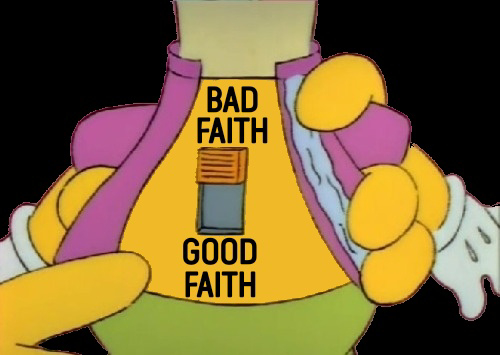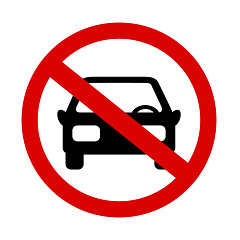ReadFanon
- 7 Posts
- 10 Comments
 0·11 months ago
0·11 months agoWhen your ideology is primarily individualist and largely aesthetic, you end up with a ton of people who treat their political orientation as a fashion statement.
Speaking as an ex-anarchist, there’s a massive trend in anarchism to not be focused on the ideological distinctions between the plethora of anarchist subtypes but instead to align oneself to a flavour of anarchism which is most appealing.
In communist thought you have very clear distinctions which are based on theoretical and practical disagreements (practical in the sense of socialism being put into practice); you have leftcoms and Trotskyists and council communists and MLs and MLMs etc. All of whom you can trace out their positions and their ideological stances from.
In anarchism it’s much more about what the individual is most attracted to as a cause than this. Sure there are platformists, DeLeonists, and egoists, for example, which fit what I’ve mentioned above about disagreements on theory and practice but you’re more likely to find an anarcha-feminist or an eco-anarchist than you will a DeLeonist or a platformist imo.
With that in mind it should come as no surprise that so much of anarchism is focused on fashion.

 0·1 year ago
0·1 year agoThere are a few things to consider:
The average lifespan of an empire is 250 years
That the situation has always been desperate and hopeless, perhaps moreso in periods of history than it is today. We can look to the battle of Stalingrad or the Long March or the period around the October Revolution as examples of just how desperate things have been and how we have been able to prevail against all odds. Heck, Lenin didn’t expect to see the revolution in his lifetime and then in a few short years he ended up leading it.
I’m not going to go into depth on this because I don’t have the focus rn but ultimately this is a question of having a world to win and daring to invent the future. We have two propositions:
- We are in a hopeless situation with no potential for achieving revolution
- We are in a situation which has potential for achieving a revolution
The importance of revolutionary optimism cannot be overstated. (There are some good video essays out there on this topic.)
Ultimately, the choice is between an attitude of defeatism or revolutionary optimism. If we choose defeatism then we foreclose on the potential for revolution because, if an opportunity for revolution exists, we will not be in a position to seize it.
If we choose revolutionary optimism, on the other hand, we have the ability to seize the opportunity.
We cannot allow ourselves to foreclose on the opportunity for revolution because we will only ever know if something is possible by striving for it and, in achieving it, proving that it is in fact possible retrospectively.
Go on then, tell me which leftist leaders you think should be upheld.
It’s like I’d color my face blue and someone calls me a racist, discriminating penguins.

It’s strange that this concern for context only ever goes in one direction. Symbolism, like words, develop meaning through their usage.
If I were to say that I ejaculated during intercourse with your wife last night, would you take that to be an insult or would you be dying on that same context hill that the verb to ejaculate used to refer to suddenly making a statement and that intercourse used to refer to having a discussion with someone?
Probably not.
Would you say that the swastika isn’t a Nazi symbol because it originated in Indo-European religious and cultural symbology?
Maybe. I can’t speak for you.
The origin of something doesn’t determine its usage.
I challenged this notion with a lib the other day.
The watermelon originated in Africa. That doesn’t mean that the vile caricaturised depictions of black people eating watermelons is somehow not inherently racist.
You can also look to the origin and continuing usage of the swastika, especially in Asian cultures, as another example here - you aren’t going to tell me that the right-angled unicode swastika being used by westerners on the internet isn’t done in service of fascism 99% of the time.
And on that matter, don’t let erm-ackshually dorks tell you that the 90 degree swastika wasn’t used by Nazis and isn’t representative of them. One of the most famous depictions of the Nazi swastika is a right angled one:
https://video.twimg.com/ext_tw_video/1214749781387436032/pu/vid/450x360/o0Nxlts0lffM8lUv.mp4
 0·1 year ago
0·1 year agoDid you notice how, time and again, the narrative emerges that the anarchists were too disorganised and that they kept on stepping on their own dicks to disastrous outcomes?
Instead of organising, they set up a squat and started doing mutual aid in a warzone which, unsurprisingly, didn’t last.
And then, at the end of the article which was written in 2022, they finally state:
Anarchists are now trying to create horizontal grassroots ties in society, based on common interests, so that communities can address their own needs, including self-defense. This differs significantly from ordinary Ukrainian political practice, in which it is often proposed to unite around organizations, representatives, or the police. Organizations and representatives are often bribed and the people who have gathered around them remain deceived. The police may, for example, defend LGBT events but get mad if these activists join a riot against police brutality. Actually, this is why we see potential in our ideas—but if a war breaks out, the main thing will again be the ability to participate in armed conflict.
This article was released at the time of the Russian special military operation commencing.
The war was already at their doorstep in 2014 and it took them 8 years to pull themselves together and to decide that they should start laying foundations within the community to prepare for war, all the while fascist paramilitaries are crawling all over Eastern Ukraine.
Given that I’ve heard literally zero about any anarchist militias in the Ukraine since this article, I can only assume that the weeks of preparation they must have put into developing links into the broader community never ended up bearing fruit.




Add “no bosses” to that list too.
Y’all think that any sort of construction or manufacturing is going to run in a self-organised fashion without foremen? Lol, good luck.
If you’ve never worked in a factory before, that’s cool but there are much better ways of announcing this fact and I think that it’s important to remember the old “No investigation, no right to speak” or, in their terms “In the matter of boots, I refer to the authority of the bootmaker”.
I try not to focus too much on these types because I’m convinced that a couple of years of touching grass, working for a living, and spending time doing on the ground organising will bring these infantile urges in people to a conclusion in all but the most stubborn-minded. Although you can cut through these naive ideological positions by tracing out how there was (vulgar) vanguardism in their favourite historical socialist projects and how leadership was crucial to their functioning. That being said I have more important things to do with my time than engaging people with discussions on that stuff tbh.